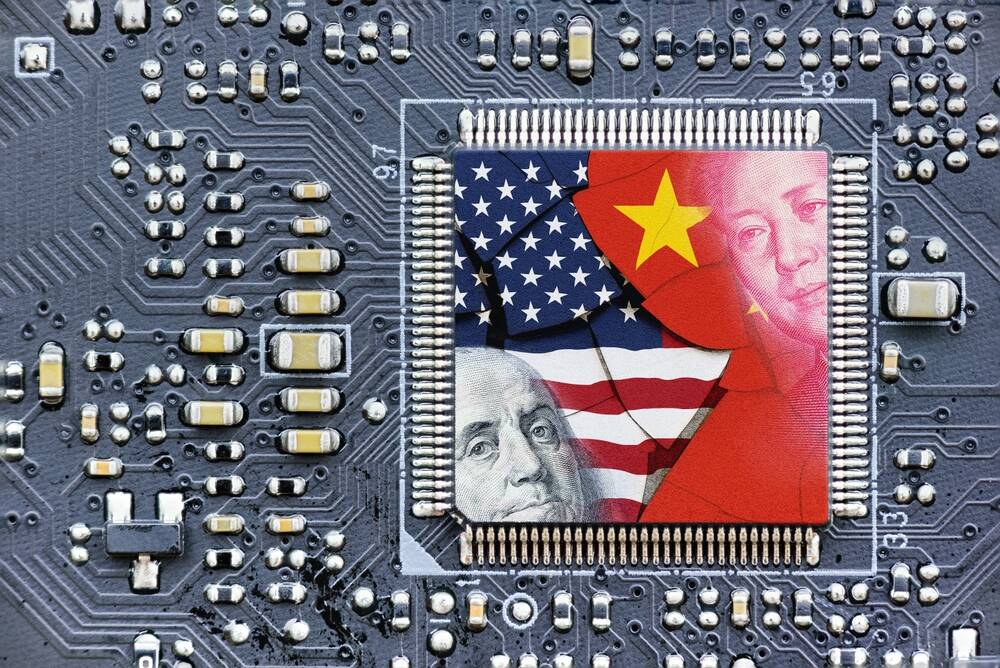TSMC Reportedly Cuts Off RISC-V Chip Designer Linked To Huawei Accelerators

Taiwan Semiconductor Manufacturing Co. has allegedly cut off shipments to Chinese chip designer Sophgo over allegations it was attempting to supply components to Huawei in violation of US sanctions.
The report comes roughly a week after TSMC alerted US officials to what they believed was an attempt by Huawei to subvert US export controls on advanced manufacturing technologies and AI accelerators through the use of proxy companies.
TSMC raised the alarm after a customer placed orders for a chip closely resembling that of Huawei's Ascend 910B, a high-end AI accelerator aimed at AI training and inference workloads. According to Reuters, which cited two people familiar with the matter, the company in question was Sophgo.
Sophgo, which designs chips based on the open RISC-V instruction set architecture, on Sunday issued a statement denying these reports.
"The investigation of the US Commerce Department on possible TSMC and Huawei link is not related to Sophgo and its product. Sophgo has never engaged in any direct or indirect business relationship with Huawei," the statement reads.
The chip designer claimed it was in full compliance with US export restrictions and had never violated those rules, and had submitted a "detailed investigation report to TSMC" to prove it was not connected to the Huawei investigation.
Bitmain, a Chinese crypto equipment firm associated with Sophgo, has also denied involvement in the investigation, calling allegations "false and baseless."
However, it's worth noting that Bitmain's track record on this kind of thing is far from spotless. As reported by Reuters, in 2021, prosecutors raided Bitmain's Taiwan offices and accused two of its affiliates of trying to illegally recruit Taiwanese engineers.
Huawei has been subject to intense scrutiny and export controls going back to 2019, after fears the Chinese IT giant could bake backdoors into its equipment landed it on the US Entity list, which restricts the sale of sensitive goods and technologies to the firm without a license.
Under the rules, TSMC ceased doing business with Huawei in compliance with these rules in 2020.
- Mature node chip output to surge 6% in 2025
- Ex-Intel board members make an ill-conceived case for spinning off Foundry
- Uncle Sam extends 25% CHIPS Act tax credit to wafer, solar panel manufacturing
- TSMC blows whistle on potential sanctions-busting shenanigans from Huawei
Huawei's Ascend 910B is the Chinese tech giant's most sophisticated accelerator boasting processing speeds roughly on par with Nvidia's now four-year-old A100 with 320 teraFLOPS of FP16 or 640 teraFLOPS of Int8 performance.
While maybe not the fastest chip out there, US trade restrictions on the sale of American-made accelerators have only gotten tougher in recent years. As of last October, the restrictions were so severe that even some high-end graphics cards aimed at gaming were banned from sale in the Middle Kingdom. These performance caps have apparently made homegrown accelerators from the likes of Huawei or Moore Threads more attractive, with several Chinese firms reportedly deploying large quantities of the Ascend 910B.
TSMC for its part has previously said it's working with the US Commerce Department to resolve the matter and that it's "not aware of TSMC being the subject of any investigation at this time." ®
From Chip War To Cloud War: The Next Frontier In Global Tech Competition
The global chip war, characterized by intense competition among nations and corporations for supremacy in semiconductor ... Read more
The High Stakes Of Tech Regulation: Security Risks And Market Dynamics
The influence of tech giants in the global economy continues to grow, raising crucial questions about how to balance sec... Read more
The Tyranny Of Instagram Interiors: Why It's Time To Break Free From Algorithm-Driven Aesthetics
Instagram has become a dominant force in shaping interior design trends, offering a seemingly endless stream of inspirat... Read more
The Data Crunch In AI: Strategies For Sustainability
Exploring solutions to the imminent exhaustion of internet data for AI training.As the artificial intelligence (AI) indu... Read more
Google Abandons Four-Year Effort To Remove Cookies From Chrome Browser
After four years of dedicated effort, Google has decided to abandon its plan to remove third-party cookies from its Chro... Read more
LinkedIn Embraces AI And Gamification To Drive User Engagement And Revenue
In an effort to tackle slowing revenue growth and enhance user engagement, LinkedIn is turning to artificial intelligenc... Read more

